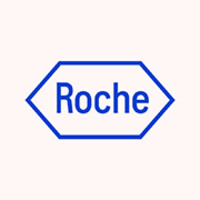A New Dawn in Pediatric Health: Ziresovir's Breakthrough Against RSV
April 17, 2025, 5:23 am

Location: United States, California, South San Francisco
Employees: 10001+
Founded date: 1896

Location: United States, California, San Diego
Employees: 1001-5000
Founded date: 1993
Total raised: $69.3M
In the world of pediatric medicine, a storm brews. Respiratory syncytial virus (RSV) is a formidable foe, striking down infants and young children with relentless ferocity. Each year, millions of cases emerge, leading to countless hospitalizations and, tragically, deaths. Until now, treatment options have been scarce, limited to supportive care that often feels like throwing a band-aid on a bullet wound. But a beacon of hope has emerged from the shadows: ziresovir, a novel antiviral drug that promises to change the landscape of RSV treatment.
Ziresovir is not just another medication; it represents a paradigm shift. Recently published results from a Phase III clinical trial in *The Lancet Child & Adolescent Health* have unveiled its efficacy and safety in infants under six months old. This age group is particularly vulnerable, and the stakes could not be higher. The trial, conducted across 30 sites in China, marks a significant milestone in the fight against RSV.
The study's design was meticulous. Infants were randomized to receive either ziresovir or a placebo for five days, followed by a 24-month follow-up. The results were striking. By Day 3, infants treated with ziresovir showed a 3.5-point reduction in bronchiolitis symptoms, a stark contrast to the 2.2-point reduction seen in the placebo group. This 54.5% difference is not just a statistic; it’s a lifeline for families grappling with the chaos of RSV.
But the benefits didn’t stop there. By Day 5, the antiviral effects of ziresovir were evident, with a 2.51 log₁₀ reduction in viral load compared to 1.87 log₁₀ in the placebo group. This rapid viral clearance is crucial. It means quicker recovery times and less suffering for the little ones. The time to resolution of wheezing and retractions was also significantly shorter in the treatment group, hinting at a brighter future for infants battling this virus.
Long-term safety is a critical concern when introducing new therapies, especially for the most vulnerable populations. Ziresovir demonstrated a favorable safety profile, with treatment-emergent adverse events occurring in only 18% of the treatment group compared to 11% in the placebo group. Importantly, no severe adverse events or deaths were reported. This is a crucial point for parents and healthcare providers alike.
The long-term benefits of ziresovir extend beyond immediate symptom relief. The trial revealed a reduced risk of recurrent wheezing and asthma in treated infants. The incidence of wheezing was 3.6 times lower in the ziresovir group, and wheezing episodes were reduced by 2.6 times. These findings suggest that early intervention with ziresovir may not only alleviate acute symptoms but also mitigate the risk of chronic respiratory conditions later in life.
This breakthrough is monumental. Ziresovir is the first RSV-targeted antiviral therapy to show clinical efficacy in infants under six months. This age group is often overlooked in clinical trials, leaving them vulnerable to severe complications. The implications of this study are profound, potentially reshaping how RSV is treated and paving the way for new therapeutic strategies.
The journey of ziresovir is not just a tale of scientific achievement; it is a testament to the dedication of researchers and healthcare professionals. Dr. Jim Wu, CEO of Ark Biopharmaceutical, emphasized the significance of these findings at the recent International RSV Symposium in Brazil. The recognition from the global RSV research community underscores the importance of this work.
Ark Biopharmaceutical, the company behind ziresovir, has positioned itself as a leader in the development of innovative therapies for respiratory diseases. Founded in 2014, the company has focused on creating solutions that address urgent medical needs. Ziresovir, an oral small-molecule inhibitor targeting the RSV fusion protein, is a prime example of their commitment to advancing pediatric health.
As we look to the future, the potential of ziresovir is immense. It opens the door to a new era in RSV treatment, one that prioritizes not just symptom management but also long-term health outcomes. This shift in focus is crucial, as the burden of RSV extends far beyond the immediate illness. The emotional and financial toll on families is significant, and effective treatments can alleviate much of this burden.
The fight against RSV is far from over. While ziresovir represents a significant advancement, ongoing research and development are essential. The medical community must continue to explore new avenues for treatment and prevention. The landscape of pediatric health is ever-evolving, and innovations like ziresovir are vital in ensuring that our youngest and most vulnerable populations receive the care they deserve.
In conclusion, ziresovir stands as a beacon of hope in the battle against RSV. Its efficacy and safety in infants under six months mark a turning point in pediatric medicine. As we embrace this new dawn, we must remain vigilant, committed to advancing research and ensuring that every child has the opportunity for a healthy future. The journey is just beginning, but with ziresovir, we are one step closer to victory.
Ziresovir is not just another medication; it represents a paradigm shift. Recently published results from a Phase III clinical trial in *The Lancet Child & Adolescent Health* have unveiled its efficacy and safety in infants under six months old. This age group is particularly vulnerable, and the stakes could not be higher. The trial, conducted across 30 sites in China, marks a significant milestone in the fight against RSV.
The study's design was meticulous. Infants were randomized to receive either ziresovir or a placebo for five days, followed by a 24-month follow-up. The results were striking. By Day 3, infants treated with ziresovir showed a 3.5-point reduction in bronchiolitis symptoms, a stark contrast to the 2.2-point reduction seen in the placebo group. This 54.5% difference is not just a statistic; it’s a lifeline for families grappling with the chaos of RSV.
But the benefits didn’t stop there. By Day 5, the antiviral effects of ziresovir were evident, with a 2.51 log₁₀ reduction in viral load compared to 1.87 log₁₀ in the placebo group. This rapid viral clearance is crucial. It means quicker recovery times and less suffering for the little ones. The time to resolution of wheezing and retractions was also significantly shorter in the treatment group, hinting at a brighter future for infants battling this virus.
Long-term safety is a critical concern when introducing new therapies, especially for the most vulnerable populations. Ziresovir demonstrated a favorable safety profile, with treatment-emergent adverse events occurring in only 18% of the treatment group compared to 11% in the placebo group. Importantly, no severe adverse events or deaths were reported. This is a crucial point for parents and healthcare providers alike.
The long-term benefits of ziresovir extend beyond immediate symptom relief. The trial revealed a reduced risk of recurrent wheezing and asthma in treated infants. The incidence of wheezing was 3.6 times lower in the ziresovir group, and wheezing episodes were reduced by 2.6 times. These findings suggest that early intervention with ziresovir may not only alleviate acute symptoms but also mitigate the risk of chronic respiratory conditions later in life.
This breakthrough is monumental. Ziresovir is the first RSV-targeted antiviral therapy to show clinical efficacy in infants under six months. This age group is often overlooked in clinical trials, leaving them vulnerable to severe complications. The implications of this study are profound, potentially reshaping how RSV is treated and paving the way for new therapeutic strategies.
The journey of ziresovir is not just a tale of scientific achievement; it is a testament to the dedication of researchers and healthcare professionals. Dr. Jim Wu, CEO of Ark Biopharmaceutical, emphasized the significance of these findings at the recent International RSV Symposium in Brazil. The recognition from the global RSV research community underscores the importance of this work.
Ark Biopharmaceutical, the company behind ziresovir, has positioned itself as a leader in the development of innovative therapies for respiratory diseases. Founded in 2014, the company has focused on creating solutions that address urgent medical needs. Ziresovir, an oral small-molecule inhibitor targeting the RSV fusion protein, is a prime example of their commitment to advancing pediatric health.
As we look to the future, the potential of ziresovir is immense. It opens the door to a new era in RSV treatment, one that prioritizes not just symptom management but also long-term health outcomes. This shift in focus is crucial, as the burden of RSV extends far beyond the immediate illness. The emotional and financial toll on families is significant, and effective treatments can alleviate much of this burden.
The fight against RSV is far from over. While ziresovir represents a significant advancement, ongoing research and development are essential. The medical community must continue to explore new avenues for treatment and prevention. The landscape of pediatric health is ever-evolving, and innovations like ziresovir are vital in ensuring that our youngest and most vulnerable populations receive the care they deserve.
In conclusion, ziresovir stands as a beacon of hope in the battle against RSV. Its efficacy and safety in infants under six months mark a turning point in pediatric medicine. As we embrace this new dawn, we must remain vigilant, committed to advancing research and ensuring that every child has the opportunity for a healthy future. The journey is just beginning, but with ziresovir, we are one step closer to victory.